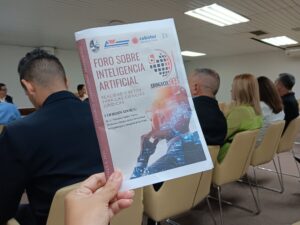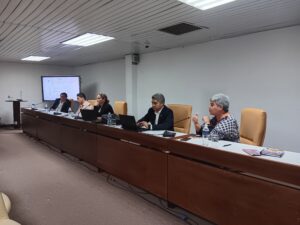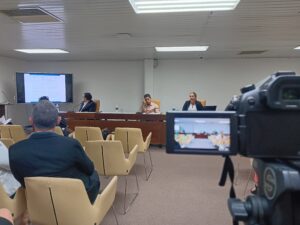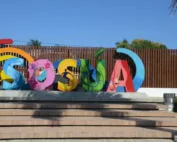Artificial Intelligence under debate at Abogacía 2025

By: Rachell Cowan Canino
What are the rules or regulations linked to the use of Artificial Intelligence? How much can AI serve as management tool for lawyers? To what extent can AI support the legal implications of a crime? These are some of the proposals raised at the Forum on Artificial Intelligence: Realities and Challenges for Legal Sciences, within the framework of the International Law Congress Abogacía 2025.
A panel of lawyers and specialists from Cuba and Colombia exchanged on the current implications of AI in the different areas of legal activity. Speakers based their presentations on the different concepts that define this technology worldwide as an area of scientific and practical knowledge related to computer science.
Currently, AI can be used in multiple aspects of daily life, which is why it is important to develop a policy for its regulation. MSc. Yarina Amoroso Fernández, assistant professor at the University of Computer Sciences (UCI), highlighted the need to identify priority sectors for its use; and specific areas such as education where the human being continues to be important.
“We need to create AI in Cuba that responds to our social project , and that serves as an accompaniment to innovation. Aiming at reliable AI, AI for all (…) That is, AI has among it’s benefits the reduction of time in terms of use; hence the responsibility of regulation to organize processes and delimit accountability,” she explained.

DSc. Yanio Hernández Heredia, also from the UCI, spoke about the review of algorithms for stopping and tracking objects with deep networks for intelligent video surveillance. These technological neural networks can be applied in many daily processes such as monitoring activities and behaviors of people or intruders on public roads and in airports, etc.
It also works in vehicle tracking, penalty detection, traffic management and road safety; as well as for facial recognition in crowds for identification and access control.
In that sense, the legal framework should highlight the need to signal the presence of security cameras, as people have the right to know when they are being recorded and the use of their images.
AI is not always used for positive purposes, but is also used in cybercrime. Among the data offered by DSc. Yoruanys Suñez Tejera, professor at the University of Cienfuegos and lawyer of the National Organization of Collective Law Firms, the costs of cyber-attacks in the European Union in 2024 exceeded 10 million euros.

“Attacks are more sophisticated, more difficult to detect and confront, so how can they be prevented? Well, with advanced strategies using AI itself. If it is used to commit crime, it can also be used to detect and deal with it. Situational prevention and international collaboration can be used. AI is the superpower of cybersecurity,” he reflected.
Alic.IA, an interactive and collaborative legal assistant that works in two ways: chatbot and case management, was presented at the Forum. This generative AI can be asked about theory, legislation in Cuba and jurisprudence.
This tool allows Cuban lawyers to take on more cases and be more productive. Alic.IA works on any device as an application and allows for continuous review and growth of the database.

MORE NEWS










